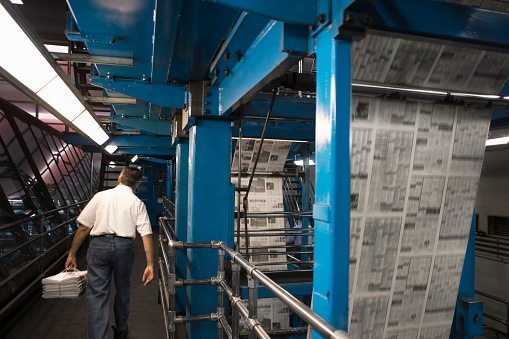Perhaps stating the obvious–and maybe the obvious needs to be stated
now and again when it’s suffocated by the shrill and the ignorant–but it’s a
lousy time for journalism. How bad? Bad.
In the time it takes a college journalism student to earn three credits in
reporting–one semester, four months or so–we’ve had:
- The arrest and criminal indictment of WikiLeaks co-founder Julian Assange (more on that in a minute)
- CNN moving to dramatically shrink its international operation with
“consolidation” of its London bureau. CNN was the last of the big
broadcasters still paying serious attention to news outside the U.S. - A BuzzFeed headline that it laid off 15% of its staff, about 250
employees. Also Huffington Post, Yahoo and AOL axed journalists. - News that GateHouse Media, one of the largest publishers in the U.S. with nearly 500 newspapers, is laying off upwards of 200 employees.
- Vice Media laying off 250 in January
- Reports of 400 job losses at Gannett, 450 at McClatchy
- The sale of the New Orleans Times-Picayune, which has been publishing since well before the Civil War, to a local rival which announced plans to fire the entire 161-member staff.
- And the Arkansas Democrat-Gazette announcing its intention to end weekday print editions and give all subscribers an iPad–that’s newspaper-speak for yelling ‘uncle.’
It was undoubtedly a rough semester for local journalism, especially. In words that seem less an observation than a eulogy, the executive editor of the New York Times said the greatest crisis in American journalism is the
death of local news. Dean Baquet predicted most local newspapers will die
in the next five years.
The crisis grows because there’s really nothing to replace them. With
fewer local reporters hungry to move up the masthead, there are fewer
stories of venal politicians, incompetent school boards and bad police. A
social media blog or a lone citizen doesn’t stand much of a chance against
a determined slumlord or a bent senator.
But another crisis looms even larger. That is the systematic vilification of
the profession by some elected leaders that appear to be giving license to
individuals, and some organs of government, to attack the media like never
before.
The Reporters Committee for Freedom of the Press tracks what’s
happening daily. The trends are alarming, and the causes
obvious. As the Committee reports in its look back over 2018:
(T)he United States news media has experienced increasing hostility in
recent years, stoked by virulent attacks from politicians.
In 2018, journalists and news organizations came under an unprecedented
level of attack from politicians and the public alike. On June 28, a man
walked into the Capital Gazette’s newsroom in Annapolis, Maryland, and
shot several people, killing four journalists and a sales
assistant…(a)dditionally, journalists in the U.S. continued to find
themselves the targets of a dismaying number of physical attacks and
threats across the county. (We) reported 35 attacks affecting 42 journalists, ranging from assaults on reporters in the field to explosive
devices mailed to CNN’s office.
Troublingly, President Trump has not stopped using rhetoric that
endorses violence against journalists. (emphasis ours)
At the same time, the federal government has escalated its crackdown on
employees sharing government documents or information with journalists.
And increasingly, the government is coming after the journalists
themselves. The report found the number of subpoenas for journalists
jumped from six in 2017 to 26 last year, a four-fold increase. And there’s
the case of Ali Watkins.
“(T)he Justice Department seized years’ worth of emails and phone records
from New York Times reporter Ali Watkins without her knowledge or
consent after she published a story about a Trump campaign aide’s alleged ties to Russian agents.“
But that was last year. How’s this year doing in terms of the government v. the media? Well, so far…
…San Francisco police raided the home office of a freelance journalist.
Bryan Carmody was detained and handcuffed for several hours as
cops–read here ‘the government’–seized laptops, cameras, hard drives,
business records and his cellphone. The reason for the Gestapo-like
move? The government wanted to find the source of a leak about the sex
life of a San Francisco public defender, a leak which had embarrassed the
government.
…The U.S. government filed 17 criminal charges under the Espionage Act
against WikiLeaks founder Julian Assange. The indictment accuses him of
soliciting, receiving and publishing thousands of leaked documents in
2010.
Until Assange, no journalist had ever been criminally charged for
disclosing government secrets. In the minds of many, the move against
Assange, most certainly approved at the highest levels of government, has
taken the hate campaign against journalists to a new and dangerous level.
So, it’s worth re-stating: It’s a bad time in America for journalism. How bad?Bad, and it’s getting worse.



